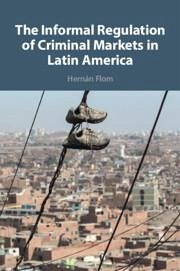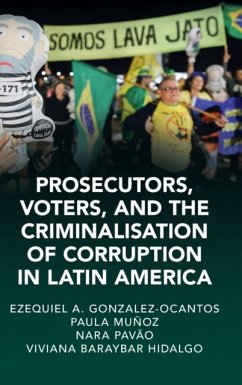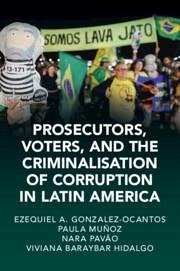
Violence in Latin America and the Caribbean
Versandkostenfrei!
Versandfertig in über 4 Wochen
114,99 €
inkl. MwSt.
Weitere Ausgaben:

PAYBACK Punkte
57 °P sammeln!
Violence in Latin America and the Caribbean is no longer perpetrated primarily by states against their citizens, but by a variety of state and non-state actors. This book examines violence at the subnational level to illuminate how violence and vulnerability are embedded within subnational configurations of space and clientelistic networks.













